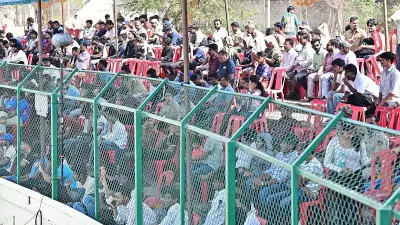
The Pakistan Cricket Board (PCB) has launched a scathing attack against the International Cricket Council (ICC), accusing the global governing body of displaying clear bias in its recent statement expressing solidarity with Afghanistan cricket.
PCB's Strong Condemnation
In a strongly-worded response, the PCB expressed deep concern over what it termed as "discriminatory treatment" by the ICC. The board questioned why the world cricket body remained silent on other important matters affecting member nations while being quick to issue statements supporting Afghanistan.
The Core Controversy
The controversy erupted after the ICC issued an official statement showing support for cricket in Afghanistan. The PCB immediately took exception to this move, pointing out that the ICC has maintained silence on several critical issues concerning Pakistani cricket over the years.
Demand for Equal Treatment
The Pakistani board emphasized that all ICC member nations deserve equal treatment and attention from the global cricketing body. They highlighted that selective solidarity statements create an impression of preferential treatment toward certain nations while ignoring the concerns of others.
Historical Context of Grievances
This isn't the first time Pakistan has raised concerns about unequal treatment in international cricket. The PCB pointed to several instances where they believe Pakistani cricket interests were overlooked by the ICC, including security concerns affecting home series and tournament hosting rights.
Call for Consistent Standards
The PCB has called upon the ICC to maintain consistent standards in dealing with all member nations. They stressed that the global body should either address concerns of all members equally or refrain from making selective statements that appear to favor specific countries.
Impact on Cricket Relations
This development comes at a time when international cricket relations in the region are particularly sensitive. The PCB's strong reaction indicates growing frustration with what they perceive as unequal treatment within the international cricket community.
The situation highlights the complex political dynamics that often intersect with international sports governance, particularly in cricket where geopolitical considerations frequently influence administrative decisions.






